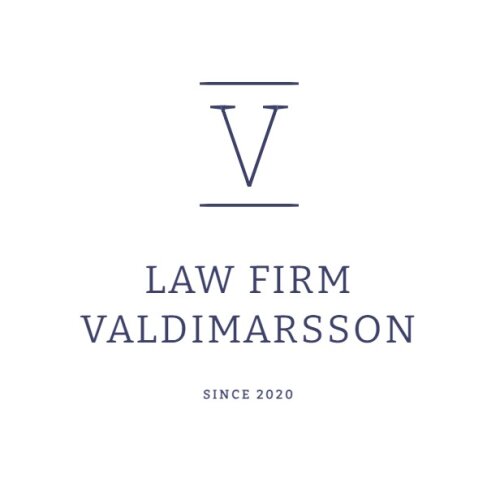Best Faith-Based Law Lawyers in Iceland
Share your needs with us, get contacted by law firms.
Free. Takes 2 min.
Or refine your search by selecting a city:
List of the best lawyers in Iceland
About Faith-Based Law in Iceland
Faith-Based Law in Iceland deals with legal issues that arise at the intersection of law and religion. It encompasses the rights and responsibilities of religious organizations, the role of religion in public life, and religious freedoms within the legal framework of Iceland. Although Iceland is relatively secular, the Evangelical Lutheran Church is the national church and has specific privileges, impacting how faith-based legal matters are addressed. The legal landscape of Faith-Based Law is formed by a combination of church law, civil statutes, and international human rights agreements.
Why You May Need a Lawyer
Individuals and organizations may require legal help in Faith-Based Law for various reasons. Common situations include disputes over religious property, issues of religious discrimination in the workplace, seeking exemptions from certain laws based on religious beliefs, navigating the legal framework for establishing a religious organization, or addressing conflicts between religious practice and Icelandic law. Lawyers specialized in this field can provide guidance on how to reconcile religious beliefs with civil obligations, ensuring that both are respected within the legal context.
Local Laws Overview
Several key aspects of local laws in Iceland are particularly relevant to Faith-Based Law. The Constitution of Iceland guarantees freedom of religion and the right to form religious associations. The legal recognition of religious organizations requires registration, and such organizations must adhere to certain regulations, including those concerning financial transparency. Anti-discrimination laws protect individuals from religious discrimination, and there are provisions for ensuring that religious freedoms do not conflict with public safety, health, or morals. Understanding these laws is crucial for navigating any legal issues that arise from religious activities or beliefs.
Frequently Asked Questions
How are religious organizations officially recognized in Iceland?
Religious organizations must apply for registration with the Ministry of Justice. This process involves meeting criteria related to membership size, governance, and financial transparency.
What rights do religious organizations have once registered?
Once registered, religious organizations can perform legally recognized ceremonies, such as weddings, and receive government funding proportional to their membership.
Can employees refuse work duties that conflict with their religious beliefs?
Employees in Iceland cannot be discriminated against based on religion and may request reasonable accommodations, but these requests cannot cause undue hardship to the employer.
Are there regulations on religious symbols in public spaces?
While public expressions of religion are allowed, certain regulations ensure that religious symbols do not infringe on public spaces or other people's rights.
What legal protections exist against religious discrimination?
Iceland's anti-discrimination laws provide protection against discrimination in employment, education, and public services based on religion.
How does the Icelandic government support religious education?
Religious education is part of the national curriculum, and parents can opt their children out of religious studies based on personal beliefs.
Can religious groups engage in political activities?
Religious groups in Iceland can engage in political activities but must comply with regulations regarding non-profit status and political neutrality.
What are the legal implications of converting to another religion?
Individuals in Iceland are free to change their religious beliefs without legal repercussions, but must inform relevant authorities if such changes affect their civil status.
Are there laws governing religious attire?
There are no specific laws governing religious attire. However, safety and identification requirements may restrict attire in certain circumstances.
How can conflicts between religious practices and Icelandic law be resolved?
Conflicts can often be resolved through legal counsel to ensure that both religious practices and Icelandic law are respected. Mediation and negotiation are commonly used strategies.
Additional Resources
People needing legal advice related to Faith-Based Law in Iceland can consider the following resources:
- The Ministry of Justice: Provides information on regulations for religious organizations.
- The Icelandic Human Rights Centre: Offers guidance on rights related to freedom of religion.
- Lögfræðingafélag Íslands (Icelandic Bar Association): Can help connect individuals with lawyers specializing in Faith-Based Law.
Next Steps
If you require legal assistance in Faith-Based Law, begin by identifying the specific issue and gathering all relevant documentation. Contact a lawyer specializing in Faith-Based Law to discuss your situation. Lawyers can provide advice on potential legal actions, help with dispute resolution, and assist with necessary paperwork. Use resources like the Icelandic Bar Association to find qualified legal professionals. Remember to inquire about their experience with cases similar to yours to ensure that you receive tailored advice.
Lawzana helps you find the best lawyers and law firms in Iceland through a curated and pre-screened list of qualified legal professionals. Our platform offers rankings and detailed profiles of attorneys and law firms, allowing you to compare based on practice areas, including Faith-Based Law, experience, and client feedback.
Each profile includes a description of the firm's areas of practice, client reviews, team members and partners, year of establishment, spoken languages, office locations, contact information, social media presence, and any published articles or resources. Most firms on our platform speak English and are experienced in both local and international legal matters.
Get a quote from top-rated law firms in Iceland — quickly, securely, and without unnecessary hassle.
Disclaimer:
The information provided on this page is for general informational purposes only and does not constitute legal advice. While we strive to ensure the accuracy and relevance of the content, legal information may change over time, and interpretations of the law can vary. You should always consult with a qualified legal professional for advice specific to your situation.
We disclaim all liability for actions taken or not taken based on the content of this page. If you believe any information is incorrect or outdated, please contact us, and we will review and update it where appropriate.
Browse faith-based law law firms by city in Iceland
Refine your search by selecting a city.











